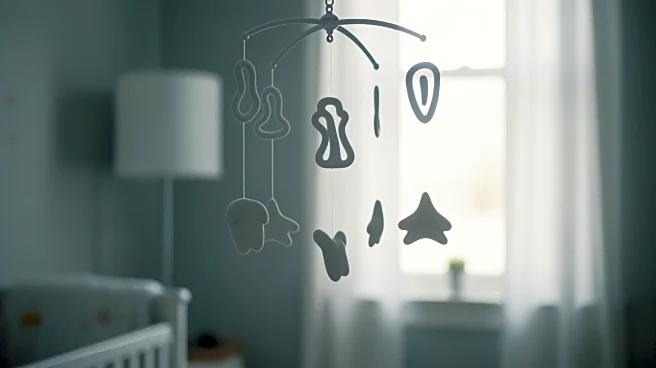What's Happening?
The film 'Die My Love,' directed by Lynne Ramsay and starring Jennifer Lawrence, delves into the intricate dynamics of motherhood. Set in a remote farmhouse in rural Montana, the story follows Grace, a new
mother who struggles with her mental health while caring for her son, Harry. Unlike typical portrayals of mothers in cinema, Grace's challenges are not solely tied to her role as a caregiver. The film presents a nuanced exploration of her internal conflicts, highlighting her love for her child amidst personal turmoil. Grace's character is depicted as both nurturing and troubled, offering a fresh perspective on the pressures of motherhood.
Why It's Important?
The film 'Die My Love' is significant as it challenges conventional narratives surrounding motherhood in cinema. By focusing on Grace's internal struggles rather than her maternal responsibilities, the film offers a broader commentary on women's mental health and identity. This approach may resonate with audiences who seek more authentic representations of women's experiences. The film's exploration of complex emotions and relationships could influence future storytelling in the industry, encouraging filmmakers to depict multifaceted female characters. Additionally, Jennifer Lawrence's performance may draw attention to the importance of mental health awareness in society.
What's Next?
The film's release may spark discussions about the portrayal of motherhood in media and its impact on societal perceptions. Critics and audiences might engage in conversations about the film's themes, potentially influencing future cinematic projects. The film could also inspire dialogue about mental health support for mothers, prompting advocacy for better resources and understanding. As the film gains traction, it may lead to increased recognition for Lynne Ramsay's directorial work and Jennifer Lawrence's acting prowess, potentially affecting their future career opportunities.
Beyond the Headlines
Beyond its immediate narrative, 'Die My Love' raises questions about the societal expectations placed on mothers and the pressures they face. The film's depiction of Grace's struggles may encourage viewers to reflect on the broader cultural attitudes towards motherhood and mental health. It highlights the need for empathy and support for women navigating complex emotional landscapes. The film's unique approach could contribute to a shift in how motherhood is portrayed in media, promoting more diverse and realistic representations.









